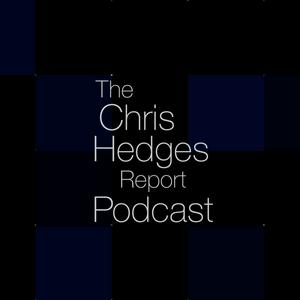Perfect Victims and the Politics of Appeal (w/ Mohammed el-Kurd) | The Chris Hedges Report
Any account of the decades-long occupation of Palestine from a Palestinian is immediately expected to be refined within a specific lens to appeal to the pathos of Western society. Well meaning activists, journalists and politicians may intend to share the stories of Palestinians, but end up curating them into a digestible format, one adjacent to the truth rather than one that embodies the whole of it. In other words, society forces Palestinians to justify and format their identities, experiences and traumas in order to be seen. Yet in the process, crucial and real pieces of their stories are sacrificed.
Mohammed el-Kurd is a Palestinian writer and poet who defines this concept in his new book, ““Perfect Victims: And the Politics of Appeal.” He joins host Chris Hedges on this episode of The Chris Hedges Report to share the ways in which Palestinians must bog down their identities, even in the midst of the genocide in Gaza, to crack through the limited and racist perspectives of Western audiences.
“None of these anchors or pundits are interested in what my political analysis or my assessment of Hamas or Islamic Jihad or PFLP [Popular Front for the Liberation of Palestine], they are just keen to know whether I fit in in their world order, whether I submit to their worldview and they would operate accordingly. And if I don't condemn Hamas or if I don't fall into their kind of world order, then I am condemned and it's okay for me to die,” El-Kurd tells Hedges.
Any positive support for Palestinians is always conditional, El-Kurd explains. He says, “in order for these people to become sympathetic victims or order for them to acquire a spot in the newspaper… they need to be transformed from this political subject into this humanitarian subject. And in doing so, you obfuscate who the killer is, you obfuscate what the genesis of their suffering is, which is, again, in our case, Zionism.”
In writing about Palestine, El-Kurd admits that “you're talking to an audience that is suspicious of you.” That changes the way people and particularly Palestinians write and speak, implanting a self-censorship that is hard to overcome. “So you write and you draft your eulogies as if they are addressed to people who are eager to indict you,” he says.
